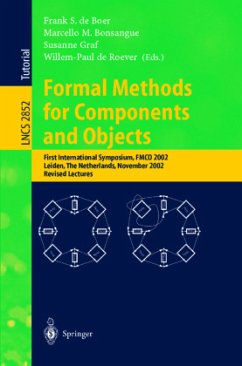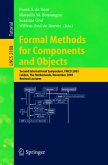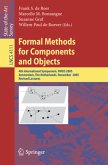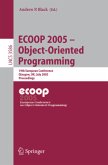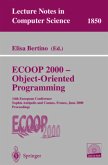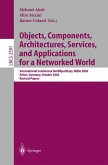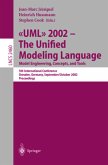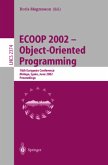This book presents revised tutorial lectures given by invited speakers at the First International Symposium on Formal Methods for Components and Objects, FMCO 2002, held in Leiden, The Netherlands, in November 2002.
The 21 revised lectures by leading researchers present a comprehensive account of the potential of formal methods applied to complex software systems such as components and object systems. The book makes a unique contribution to bridging the gap between theory and practice in software engineering.
Largeandcomplexsoftwaresystemsprovidethenecessaryinfrastuctureinall- dustries today. In order to construct such large systems in a systematic manner, the focus in the development methodologies has switched in the last two decades from functional issues to structural issues: both data and functions are enc- sulated into software units that are integrated into large systems by means of various techniques supporting reusability and modi?ability. This encapsulation principleisessentialtoboththeobject-orientedandthemorerecentcompone- based sofware engineering paradigms. Formalmethodshavebeenappliedsuccessfullytotheveri?cationofmedi- sized programs in protocol and hardware design. However, their application to large systems requires the further development of speci?cation and veri?cation techniques supporting the concepts of reusability and modi?ability. In order to bring together researchers and practioners in the areas of so- ware engineering and formal methods, we organized the 1st International S- posium on Formal Methods for Components and Objects (FMCO) in Leiden, The Netherlands, November 5-8, 2002. The program consisted of invited tu- rials and more technical presentations given by leading experts in the ?elds of Theoretical Computer Science and Software Engineering. The symposium was attended by more than 100 people. This volume contains the contributions of the invited speakers to FMCO 2002. We believe that the presented material provides a unique combination of ideas on software engineering and formal methods which we hope will be an inspiration for those aiming at further bridging the gap between the theory and practice of software engineering.
The 21 revised lectures by leading researchers present a comprehensive account of the potential of formal methods applied to complex software systems such as components and object systems. The book makes a unique contribution to bridging the gap between theory and practice in software engineering.
Largeandcomplexsoftwaresystemsprovidethenecessaryinfrastuctureinall- dustries today. In order to construct such large systems in a systematic manner, the focus in the development methodologies has switched in the last two decades from functional issues to structural issues: both data and functions are enc- sulated into software units that are integrated into large systems by means of various techniques supporting reusability and modi?ability. This encapsulation principleisessentialtoboththeobject-orientedandthemorerecentcompone- based sofware engineering paradigms. Formalmethodshavebeenappliedsuccessfullytotheveri?cationofmedi- sized programs in protocol and hardware design. However, their application to large systems requires the further development of speci?cation and veri?cation techniques supporting the concepts of reusability and modi?ability. In order to bring together researchers and practioners in the areas of so- ware engineering and formal methods, we organized the 1st International S- posium on Formal Methods for Components and Objects (FMCO) in Leiden, The Netherlands, November 5-8, 2002. The program consisted of invited tu- rials and more technical presentations given by leading experts in the ?elds of Theoretical Computer Science and Software Engineering. The symposium was attended by more than 100 people. This volume contains the contributions of the invited speakers to FMCO 2002. We believe that the presented material provides a unique combination of ideas on software engineering and formal methods which we hope will be an inspiration for those aiming at further bridging the gap between the theory and practice of software engineering.

